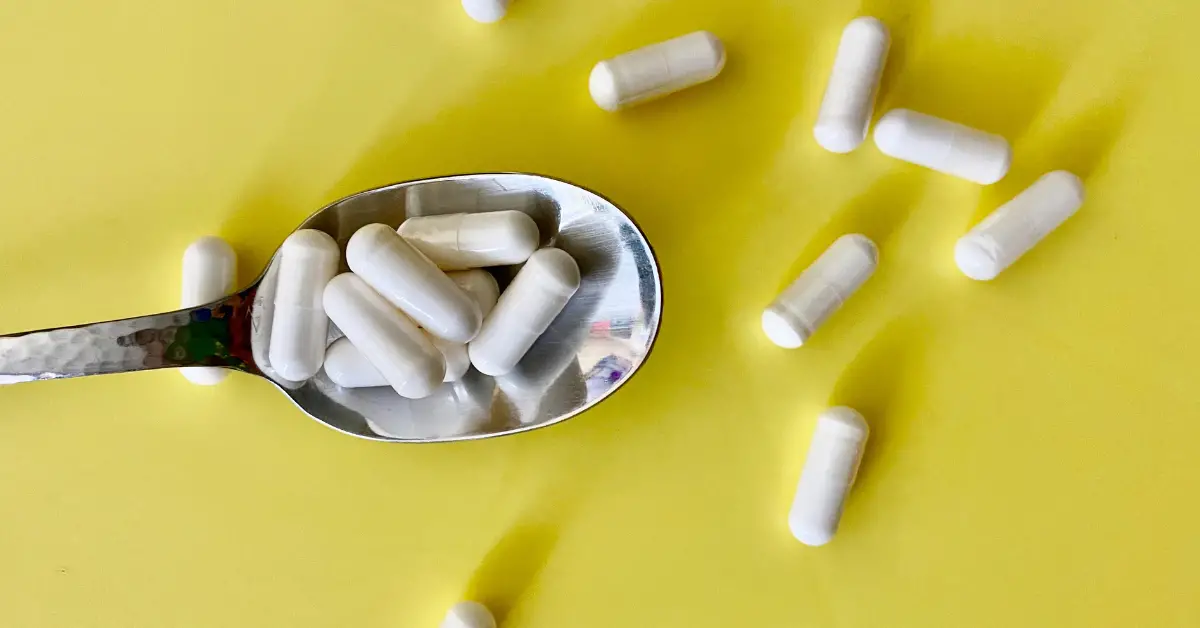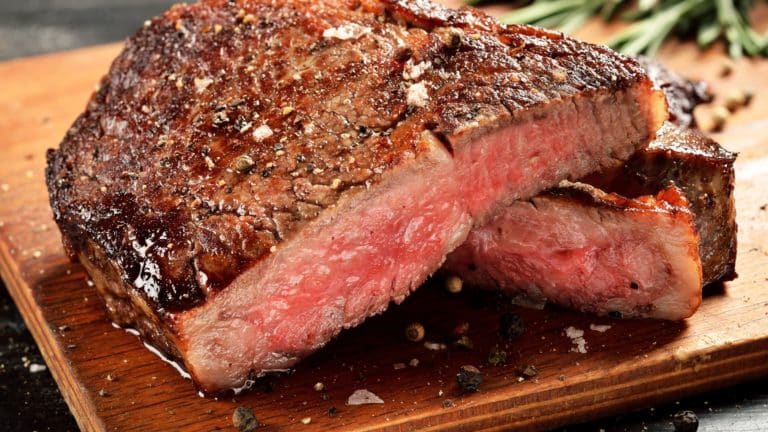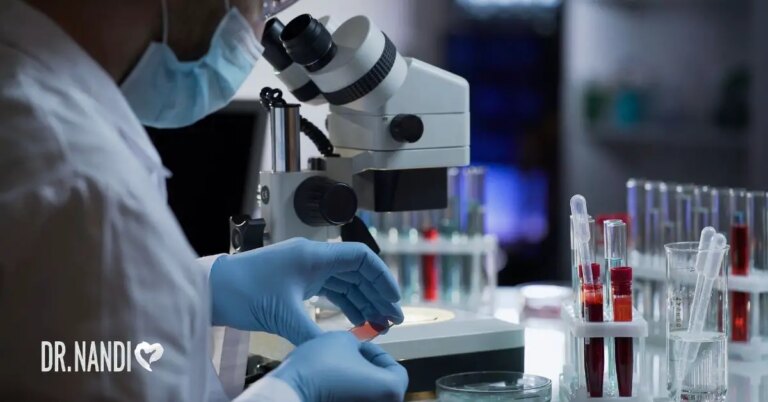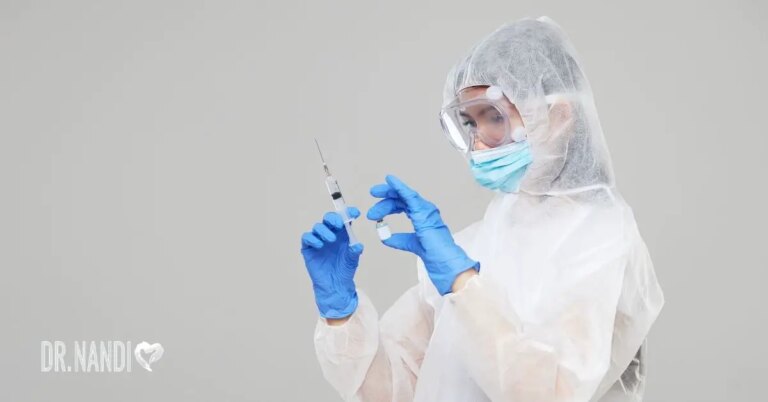Scientific studies reveal an alarming statistic: fatty liver disease, a condition closely associated with consuming products with genetically modified, high-fructose corn syrup, has become a growing health crisis in the United States. According to data from the American Liver Foundation, up to 100 million Americans, including children, are affected by the disease, and its prevalence has doubled over the past two decades. [1]
But there is hope. Fatty liver disease reversal is possible through dietary changes, with a key component being the increase of glutathione, a powerful “master antioxidant” crucial for liver repair and rejuvenation. A comprehensive liver cleanse can help boost glutathione levels and help in the detoxification process.
Glutathione: Antioxidant Powerhouse for Liver Health
Glutathione, often referred to as the “master antioxidant,” plays a pivotal role in promoting liver health, detoxification, and combating oxidative stress. Numerous scientific studies have shown that low glutathione levels are associated with major diseases such as cancer, Parkinson’s disease, Alzheimer’s disease, diabetes, and other aging-related illnesses. It serves as a critical factor in maintaining overall health and well-being. [2,3]
Several lifestyle factors can deplete glutathione levels in the body, including:
- Excessive alcohol consumption
- Unresolved mental, physical, and emotional trauma
- Stress and overwork
- Exposure to environmental toxins
- High intake of sugar and refined carbs
Notably, early symptoms of glutathione deficiency and liver problems include fatigue, tiredness, nausea, and a swollen abdomen and legs. Supplementing with glutathione has shown promising results in initial trials for aiding recovery from fatty liver disease and other liver issues. Another way to combat this is by taking steps towards the greening of your home and community to reduce your exposure to toxins.

Top 10 Foods and Supplements for Boosting Glutathione Levels
To support a healthy liver and enhance overall bodily functions, it is crucial to incorporate foods and supplements that boost glutathione levels. Here are the top sources of glutathione:
Glutathione-Rich Foods:
- Beef: Opt for grass-fed beef from pasture-raised or regenerative sources, which ensures maximum nutritional value. Avoid store-bought beef from feedlots, as they are often fed genetically engineered corn and soy.
- Fish: Choose wild-caught fish, being cautious of products sourced from countries with lax food safety regulations.
- Cruciferous Vegetables: Incorporate broccoli, cauliflower, bok choy, and other cruciferous vegetables into your diet, as they can boost glutathione levels by up to 35%, making them an excellent source for glutathione production. [4]
- Garlic and Onions: These vegetables, rich in allicin, have been shown to raise glutathione levels. For maximum allicin production, cut garlic and let it sit on the counter for 30 minutes before using.
Glutathione-Boosting Supplements:
- Whey Protein: Supplementing with whey protein has been found to significantly increase glutathione levels. [5,6]
- Curcumin: This supplement, found in turmeric, has been shown to be another effective glutathione booster.
- Vitamin C: Studies have demonstrated that taking 500-1,000 mg of vitamin C daily for 13 weeks can increase glutathione levels in white blood cells by 18% and red blood cells by up to 47%. [7,8]
- Coffee: Research from 2003 found that coffee can increase blood plasma glutathione levels by up to 13%. [9]
- Vitamin D3: Sources of vitamin D3 include exposure to sunlight, pasture-raised eggs, mushrooms, sardines, salmon, and fermented cod liver oil.
- Alpha-Lipoic Acid: Experts recommend this supplement for increasing glutathione consumption, as it strengthens the antioxidant network.

Importance of Precursors in Glutathione Synthesis
As glutathione is synthesized endogenously within cells, the availability and role of its precursors – cysteine, glutamic acid, and glycine – are vital to its production. Understanding these precursors in glutathione synthesis not only helps us grasp the biochemical pathways that support our well-being but also opens possibilities for potential therapeutic interventions in conditions related to glutathione deficiency. By examining this relationship, we can explore how diet, supplementation, and lifestyle factors can influence our internal antioxidant capabilities and overall health.
Pure N-acetyl cysteine (NAC) is a powerful antioxidant and an essential precursor to the production of glutathione – the body’s most abundant and potent endogenous antioxidant. Glutathione is vital in maintaining cellular health, protecting against oxidative stress, and supporting numerous physiological processes.[10] This section explores the significance of pure NAC as a precursor to glutathione production and sheds light on its remarkable benefits for human health.
Precursor in Glutathione Synthesis:
Glutathione synthesis relies on the availability of its constituent amino acids, with cysteine being the most critical. However, cysteine is relatively scarce in the diet and is quickly metabolized during digestion. This limitation underscores the importance of precursor molecules like N-acetyl cysteine (NAC) that can effectively replenish cellular cysteine levels and support glutathione production. [10]
Pure NAC as a Cysteine Donor:
Pure NAC is an acetylated form of cysteine that can easily penetrate cells and release cysteine upon deacetylation. Once inside the cell, NAC undergoes deacetylation by the enzyme acylase, releasing cysteine, which is then used to synthesize glutathione. By providing a readily available source of cysteine, pure NAC ensures optimal glutathione synthesis and cellular antioxidant defense. [11,12]
Enhanced Glutathione Levels With Pure NAC Supplementation:
Clinical studies have demonstrated that pure NAC supplementation leads to a significant increase in cellular glutathione levels. By raising intracellular cysteine levels, pure NAC augments the production of glutathione, enhancing the antioxidant capacity and promoting overall cellular health. This effect is particularly crucial in conditions associated with reduced glutathione synthesis, such as aging, chronic diseases, and oxidative stress-related disorders.
Additional Health Benefits of Pure NAC:
Apart from supporting glutathione synthesis, pure NAC offers a multitude of health benefits. It acts as a potent antioxidant itself, neutralizing free radicals and reducing oxidative damage. Pure NAC also supports respiratory health by assisting in the thinning and clearance of mucus, making it beneficial for respiratory conditions. Moreover, it has been studied for its potential role in liver detoxification, mental health, immune function, and cardiovascular health.

My Personal RX: Diet & Lifestyle Changes for a Healthy Liver
As someone who understands the importance of taking care of our health, I’ve come to appreciate the significance of nurturing our liver through diet and lifestyle choices. Our liver plays a vital role in keeping our body functioning optimally. I personally prescribe these diet and lifestyle changes to significantly contribute to the health of your liver.
- Limit Alcohol Consumption: Excessive alcohol consumption can be harmful to liver cells. Consider reducing your alcohol intake or abstaining entirely.
- Regular Exercise: Engaging in regular physical activity helps burn triglycerides for fuel, reducing liver fat. Research has shown that even 4 minutes of high-intensity interval training (HIIT) can have significant health benefits.
- Balanced Diet: Avoid high-calorie meals, saturated fats, refined carbohydrates, and sugars. Instead, focus on consuming high-fiber foods, lean proteins, and healthy fats to support liver health. Be proactive about incorporating glutathione-rich foods into your diet.
- Nourish With Superfoods: Boost your liver health by packing your meals with nutrients with the help of my Superfoods Cookbook. Cooking and staying healthy has never been more fun!
- Stay Hydrated: Water is essential for the proper functioning of all organs, including the liver. Aim to drink at least eight glasses of water per day.
- Avoid Toxins: Limit direct contact with toxins found in cleaning products, aerosol products, and insecticides, as they can injure liver cells.
- No Smoking: Smoking causes oxidative stress, leading to liver damage. Quitting smoking is the best option, but reducing the frequency can also be beneficial.
- Regular Health Check-ups: Regular check-ups and preventive screenings can help detect potential liver issues early on.
- Watch Your Belly Fat: Excess belly fat is closely linked to an overworked liver. Maintaining a healthy weight can relieve strain on the liver and support its optimal function.
- Supplement Wisely: Consider incorporating glutathione-boosting supplements into your routine and take my Liver Support Supplement daily, which also supports healthy inflammatory and antioxidant balance. You can also add curcumin, which helps dispel toxins from the body, and Pure N- Acetyl Cysteine which protect cells from oxidative stress.
Empower yourself with knowledge and take control of your liver health. By implementing preventative measures, boosting glutathione levels, and adopting a holistic approach, you can detoxify your liver, reverse fatty liver disease, and optimize your overall health and well-being.

References:
- Rivera, W. (2022). Fatty Liver Disease – American Liver Foundation. American Liver Foundation. https://liverfoundation.org/about-your-liver/facts-about-liver-disease/fatty-liver-disease/
- Gandhi, G., Malhotra, S. K., Kaur, T., Tyagi, S., & Bassan, R. L. (2021). Glutathione: The master antioxidant-Beyond skin lightening agent. Pigment International, 8(3). https://journals.lww.com/pigi/toc/2021/08030
- Ballatori, N., Krance, S. M., Notenboom, S., Shi, S., Tieu, K., & Hammond, C. J. (2009). Glutathione dysregulation and the etiology and progression of human diseases. Biological Chemistry, 390(3), 191–214. https://doi.org/10.1515/bc.2009.033
- Navarro, S. L., Chang, J., Peterson, S., Chen, C., King, I. B., Schwarz, Y., Li, S., Li, L., Potter, J. D., & Lampe, J. W. (2009). Modulation of Human Serum Glutathione S-Transferase A1/2 Concentration by Cruciferous Vegetables in a Controlled Feeding Study Is Influenced by GSTM1 and GSTT1 Genotypes. Cancer Epidemiology, Biomarkers & Prevention, 18(11), 2974–2978. https://doi.org/10.1158/1055-9965.epi-09-0701
- Flaim, C., Kob, M., Di Pierro, A. M., Herrmann, M., & Lucchin, L. (2017). Effects of a whey protein supplementation on oxidative stress, body composition and glucose metabolism among overweight people affected by diabetes mellitus or impaired fasting glucose: A pilot study. Journal of Nutritional Biochemistry, 50, 95–102. https://doi.org/10.1016/j.jnutbio.2017.05.003
- De Aguilar-Nascimento, J. E., Silveira, B. A., & Dock-Nascimento, D. B. (2011). Early enteral nutrition with whey protein or casein in elderly patients with acute ischemic stroke: A double-blind randomized trial. Nutrition, 27(4), 440–444. https://doi.org/10.1016/j.nut.2010.02.013
- Lenton, K. J., Sané, A. T., Therriault, H., Cantin, A. M., Payette, H., & Wagner, J. (2003). Vitamin C augments lymphocyte glutathione in subjects with ascorbate deficiency. The American Journal of Clinical Nutrition, 77(1), 189–195. https://doi.org/10.1093/ajcn/77.1.189
- Johnston, C. S., Meyer, C., & Srilakshmi, J. C. (1993). Vitamin C elevates red blood cell glutathione in healthy adults. The American Journal of Clinical Nutrition, 58(1), 103–105. https://doi.org/10.1093/ajcn/58.1.103
- Esposito, F., Morisco, F., Verde, V., Ritieni, A., Alezio, A., Caporaso, N., & Fogliano, V. (2003). Moderate coffee consumption increases plasma glutathione but not homocysteine in healthy subjects. Alimentary Pharmacology & Therapeutics, 17(4), 595–601. https://doi.org/10.1046/j.1365-2036.2003.01429.x
- Schmitt, B., Vicenzi, M., Garrel, C., & Denis, F. (2015). Effects of N-acetylcysteine, oral glutathione (GSH) and a novel sublingual form of GSH on oxidative stress markers: A comparative crossover study. Redox Biology, 6, 198–205. https://doi.org/10.1016/j.redox.2015.07.012
- Lavoie, S., Murray, M. M., Deppen, P., Knyazeva, M. G., Berk, M., Boulat, O., Bovet, P., Bush, A. I., Conus, P., Copolov, D. L., Fornari, E., Meuli, R., Solida, A., Vianin, P., Cuenod, M., Buclin, T., & Q, K., DO. (2007). Glutathione precursor, N-Acetyl-Cysteine, improves mismatch negativity in schizophrenia patients. Neuropsychopharmacology, 33(9), 2187–2199. https://doi.org/10.1038/sj.npp.1301624
- Borgström, L., & Kågedal, B. (1990). Dose dependent pharmacokinetics ofN-ACETYLCYSTEINE AFTER ORAL DOSING TO MAN. Biopharmaceutics & Drug Disposition, 11(2), 131–136. https://doi.org/10.1002/bdd.2510110205




















